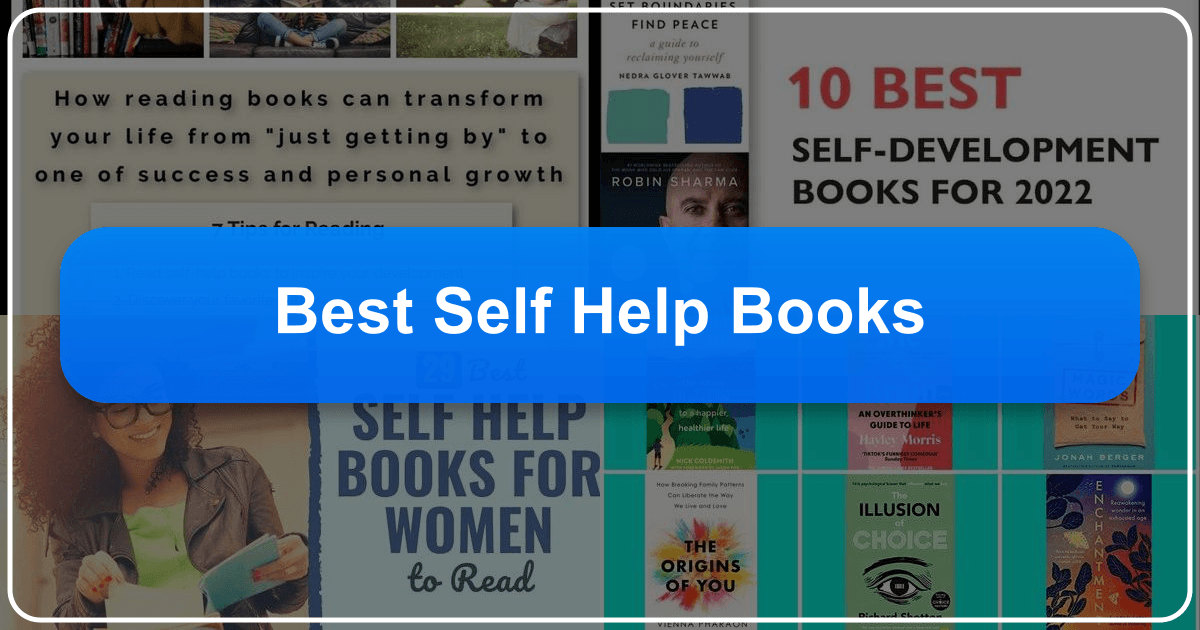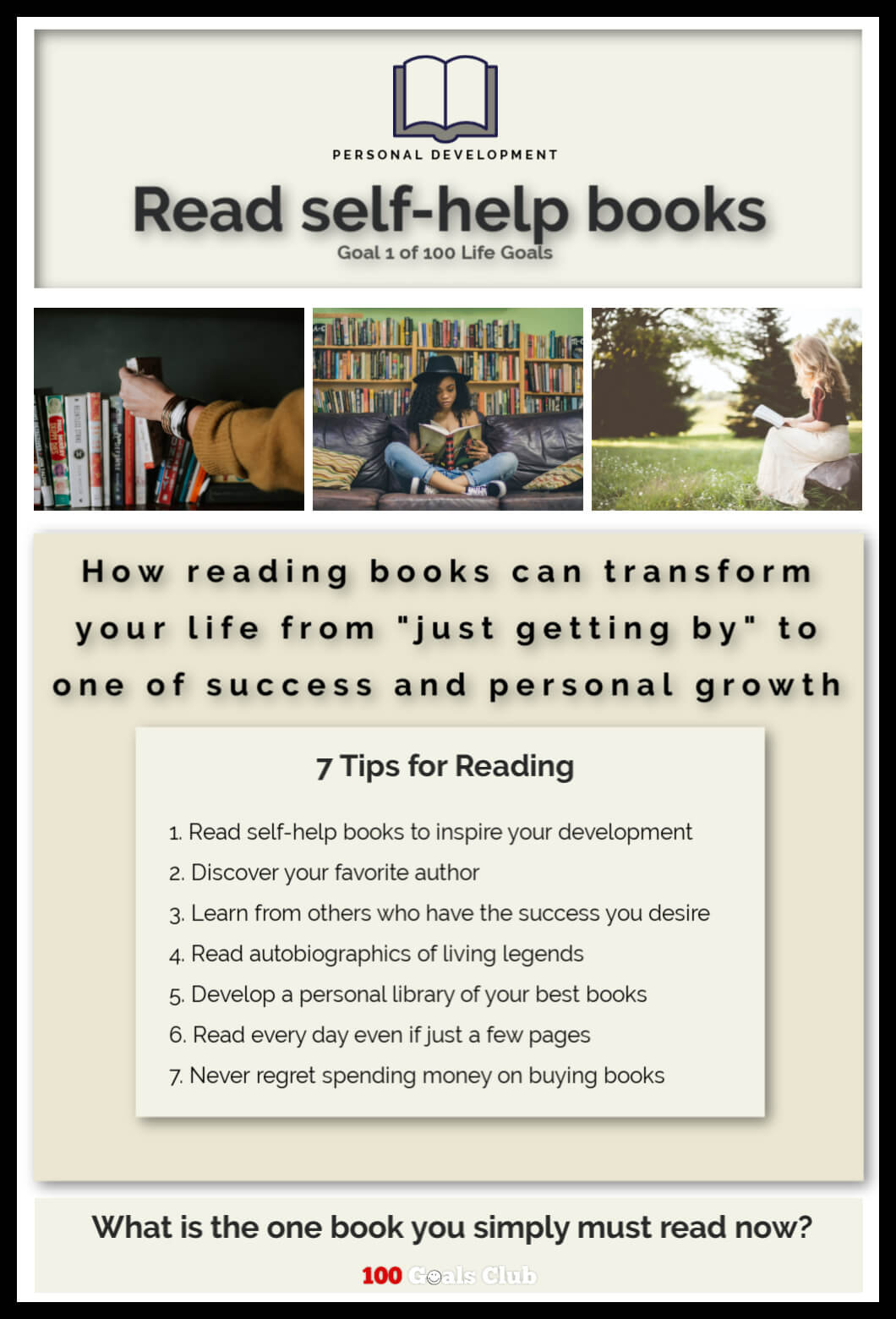Best Self-Help Books: A Comprehensive Guide

The pursuit of self-improvement is a timeless human endeavor. For centuries, individuals have sought wisdom and guidance to navigate life’s complexities, overcome challenges, and achieve personal fulfillment. While the methods and approaches may evolve, the underlying desire for self-understanding and growth remains constant. This comprehensive guide delves into the world of self-help books, exploring their history, diverse genres, influential authors, and the enduring cultural impact they wield. We’ll examine the core themes prevalent in successful self-help literature, the practical applications of their advice, and the ongoing debate surrounding their effectiveness.
The Evolution of Self-Help: From Classics to Contemporary Bestsellers
The self-help genre, as we know it today, has a surprisingly rich history. While the term “self-help” might evoke images of modern motivational speakers and bestsellers, the fundamental principles have resonated through centuries. Ancient texts like Marcus Aurelius’ Meditations and the Tao Te Ching offered profound insights into personal conduct, emotional regulation, and the pursuit of a meaningful life. Benjamin Franklin’s Poor Richard’s Almanack, a collection of aphorisms and practical advice, further exemplifies this early form of self-improvement guidance.
The formalization of self-help as a distinct genre began in the 19th century with the publication of Samuel Smiles’ Self-Help (1859). This work, drawing on biographical accounts of successful individuals, emphasized self-reliance, hard work, and perseverance as keys to personal achievement. The book’s immense popularity established a template for self-help literature that continues to influence the genre today.

The 20th and 21st centuries witnessed an explosion in self-help publications, encompassing a broad spectrum of topics and methodologies. From Dale Carnegie’s How to Win Friends and Influence People to Stephen Covey’s The 7 Habits of Highly Effective People, these books addressed diverse aspects of personal and professional development. More recent works, such as Mark Manson’s The Subtle Art of Not Giving a Fck*, have embraced a more provocative and less conventionally positive approach. This evolution demonstrates the genre’s adaptability and its ongoing reflection of societal values and concerns.
Exploring Key Themes in Self-Help Literature

Despite the diversity of self-help books, several recurring themes underpin their core message. These themes often overlap and complement one another, forming a holistic approach to personal growth:
1. Habit Formation and Change: The Power of Small Steps
Many successful self-help books highlight the importance of cultivating positive habits and breaking negative ones. The principle of incremental change, often referred to as kaizen, emphasizes the power of small, consistent steps towards a larger goal. Books such as Atomic Habits by James Clear illustrate how even minor daily improvements can lead to significant long-term results. This approach contrasts with the more impulsive, all-or-nothing mentality often associated with attempts at drastic self-transformation.
2. Mindset and Mental Reframing: Shifting Your Perspective
A central theme in self-help literature is the power of mindset. The notion that our thoughts and beliefs shape our experiences is a cornerstone of many approaches. Books such as The Power of Positive Thinking by Norman Vincent Peale and more contemporary works that emphasize cognitive behavioral therapy (CBT) techniques explore strategies for reframing negative thoughts and replacing them with more constructive ones. This mental reframing can impact various aspects of life, from stress management to goal achievement.

3. Emotional Intelligence and Self-Awareness: Understanding Your Feelings
Many self-help books emphasize the importance of emotional intelligence—the ability to understand and manage one’s own emotions and to empathize with others. Cultivating self-awareness is often presented as a prerequisite for personal growth and fulfilling relationships. Techniques for emotional regulation and managing difficult emotions are often discussed, empowering individuals to navigate interpersonal challenges more effectively.
4. Purpose and Meaning: Finding Your Path
A significant number of self-help books explore the search for purpose and meaning in life. These books often encourage readers to identify their values, set meaningful goals, and live in alignment with their authentic selves. The exploration of one’s unique talents and strengths is frequently emphasized, encouraging individuals to discover and pursue fulfilling work or activities.
5. Resilience and Overcoming Challenges: Embracing Adversity
Self-help literature often addresses the inevitability of challenges and setbacks. Cultivating resilience—the ability to bounce back from adversity—is a key theme. Books often explore strategies for coping with stress, managing difficult situations, and learning from mistakes. The concept of embracing challenges as opportunities for growth is frequently emphasized.
Influential Authors and Their Contributions
The self-help genre has been shaped by numerous influential authors who have offered unique perspectives and approaches. Some notable figures include:
- Dale Carnegie: Known for his focus on interpersonal skills and communication, Carnegie’s How to Win Friends and Influence People remains a classic in the field.
- Stephen Covey: His 7 Habits of Highly Effective People provides a framework for personal and professional effectiveness, emphasizing principles such as proactive behavior and goal setting.
- Norman Vincent Peale: A proponent of positive thinking, Peale’s The Power of Positive Thinking popularized the idea that positive mental attitudes can significantly impact life outcomes.
- Eckhart Tolle: His The Power of Now emphasizes the importance of present moment awareness and mindfulness in achieving inner peace and reducing suffering.
- James Clear: His Atomic Habits offers a practical guide to habit formation and change, emphasizing the power of small, incremental steps.
- Mark Manson: His The Subtle Art of Not Giving a Fck* offers a contrarian perspective on self-improvement, challenging conventional notions of positivity and self-esteem.
- Brene Brown: Known for her research on vulnerability and shame, Brown’s works, such as Daring Greatly, explore the importance of embracing vulnerability and authenticity.
- Gabrielle Bernstein: A spiritual teacher and author, Bernstein’s works blend spirituality and self-help principles, emphasizing the power of manifestation and trust in the universe.
- Jen Sincero: A motivational speaker and author, Sincero’s work, such as You Are a Badass, encourages readers to develop a more positive and self-empowering mindset.
The Cultural Impact of Self-Help
Self-help books have had a profound cultural impact, shaping individual perspectives and influencing societal norms. They’ve been credited with fostering a culture of self-improvement and personal responsibility, prompting discussions on mental health, personal development, and the pursuit of happiness. The genre’s commercial success reflects the widespread desire for self-understanding and growth, highlighting the human need for guidance and support in navigating life’s journey. However, criticism also exists, focusing on the potential for oversimplification, the promotion of unrealistic expectations, and the risk of perpetuating harmful self-help trends.
Libraries and Archives: Preserving the Legacy of Self-Help
The legacy of self-help is preserved through extensive collections in public and digital libraries, archives, and rare book repositories. These resources offer access to a rich history of self-improvement literature, allowing researchers and individuals alike to explore the evolution of the genre, trace the influence of key authors, and assess the ongoing impact of self-help on individual lives and societal discourse.
The availability of digitized texts and online archives makes self-help resources more accessible than ever before. This broader access fosters a wider range of perspectives and encourages critical engagement with the genre’s various approaches and methodologies.
Conclusion: The Enduring Quest for Self-Improvement
The enduring appeal of self-help books reflects the fundamental human desire for personal growth, fulfillment, and a meaningful life. While the specific techniques and approaches vary, the core message remains consistent: the power to shape one’s own destiny through self-awareness, intentional action, and a commitment to continuous learning. By understanding the historical context, core principles, and cultural impact of self-help, readers can approach the genre with a critical and discerning eye, utilizing the insights that resonate with their individual needs and goals. The journey of self-improvement is a lifelong endeavor, and self-help books, when approached thoughtfully, can serve as valuable tools along the way.